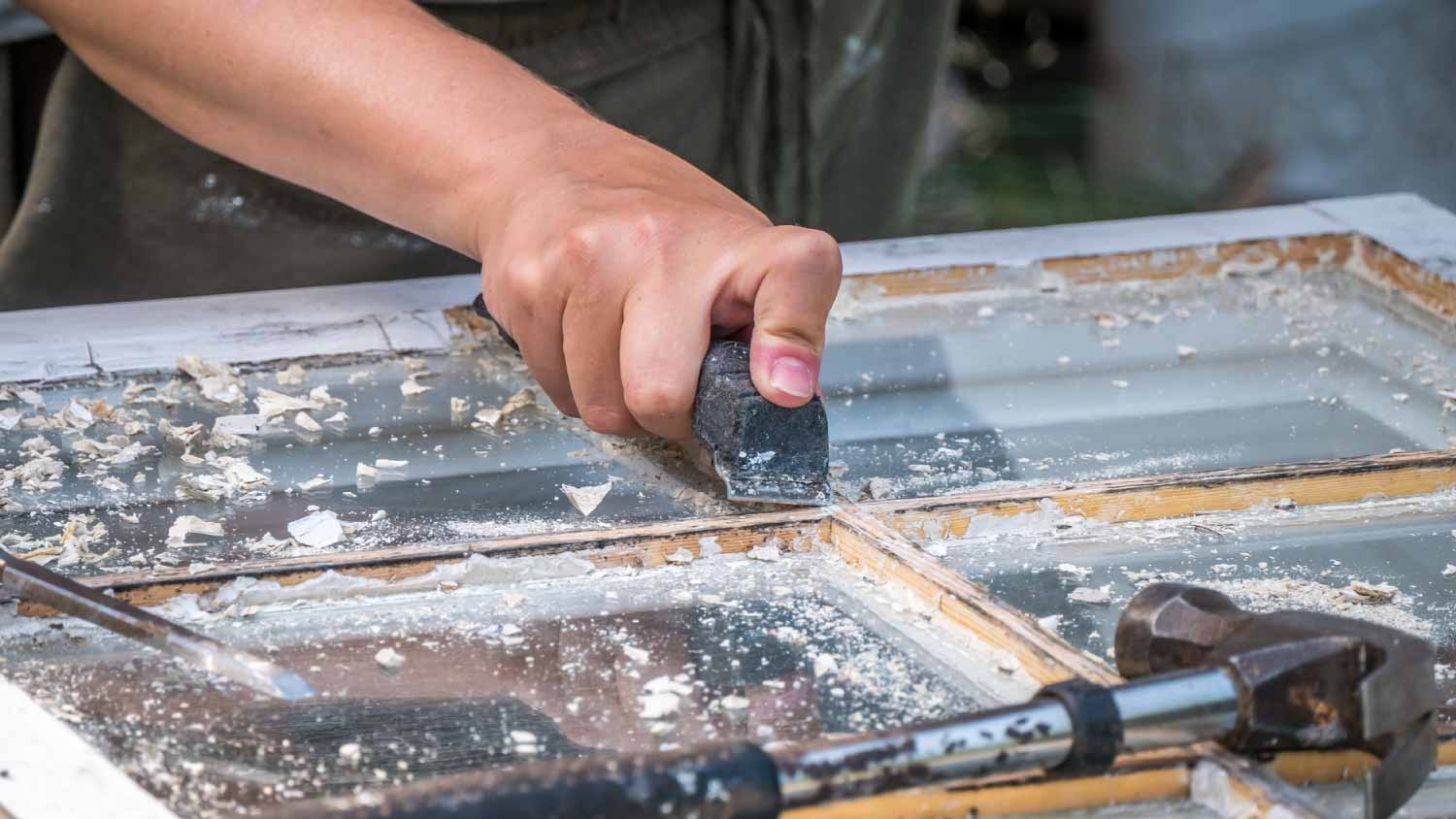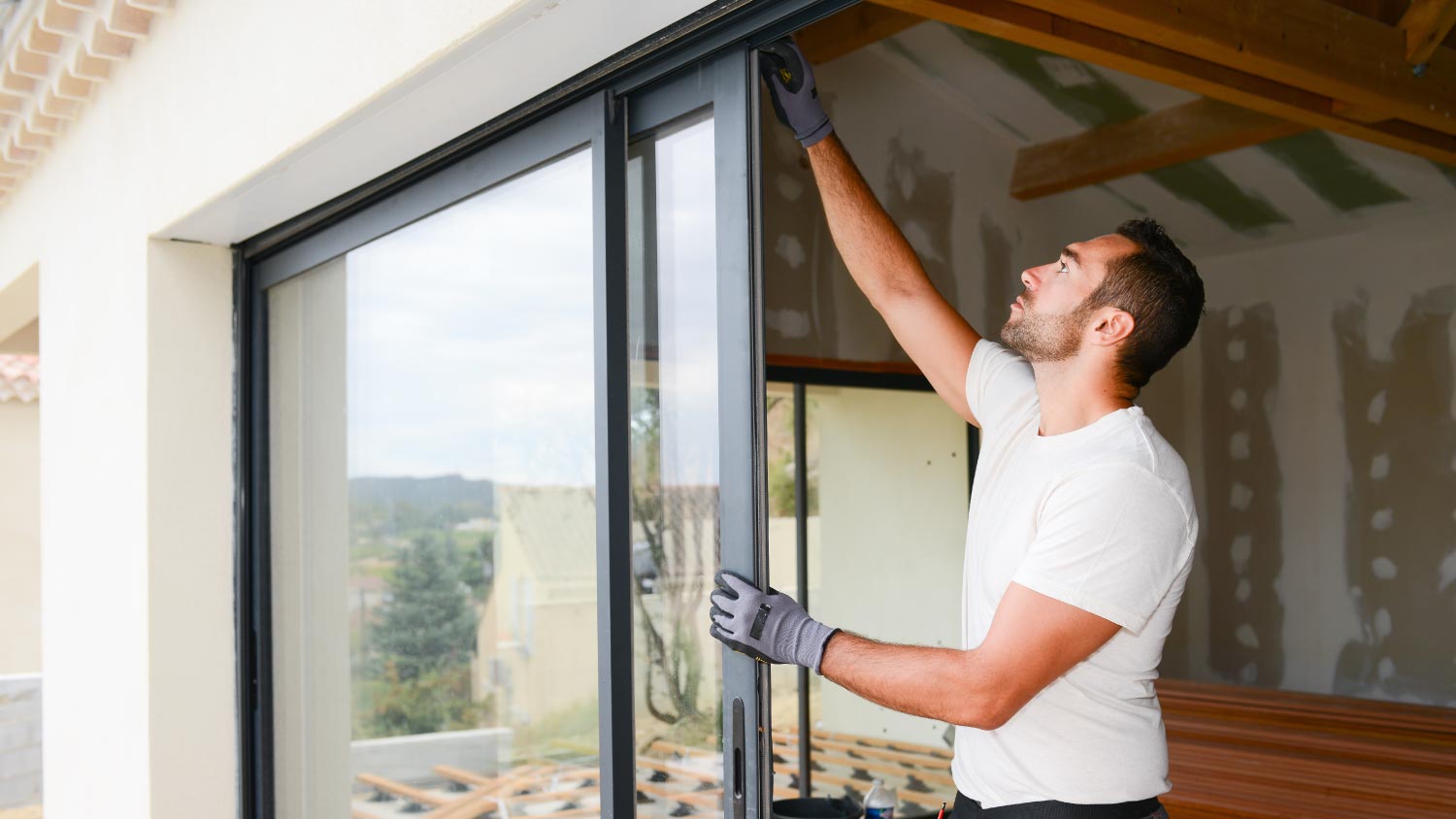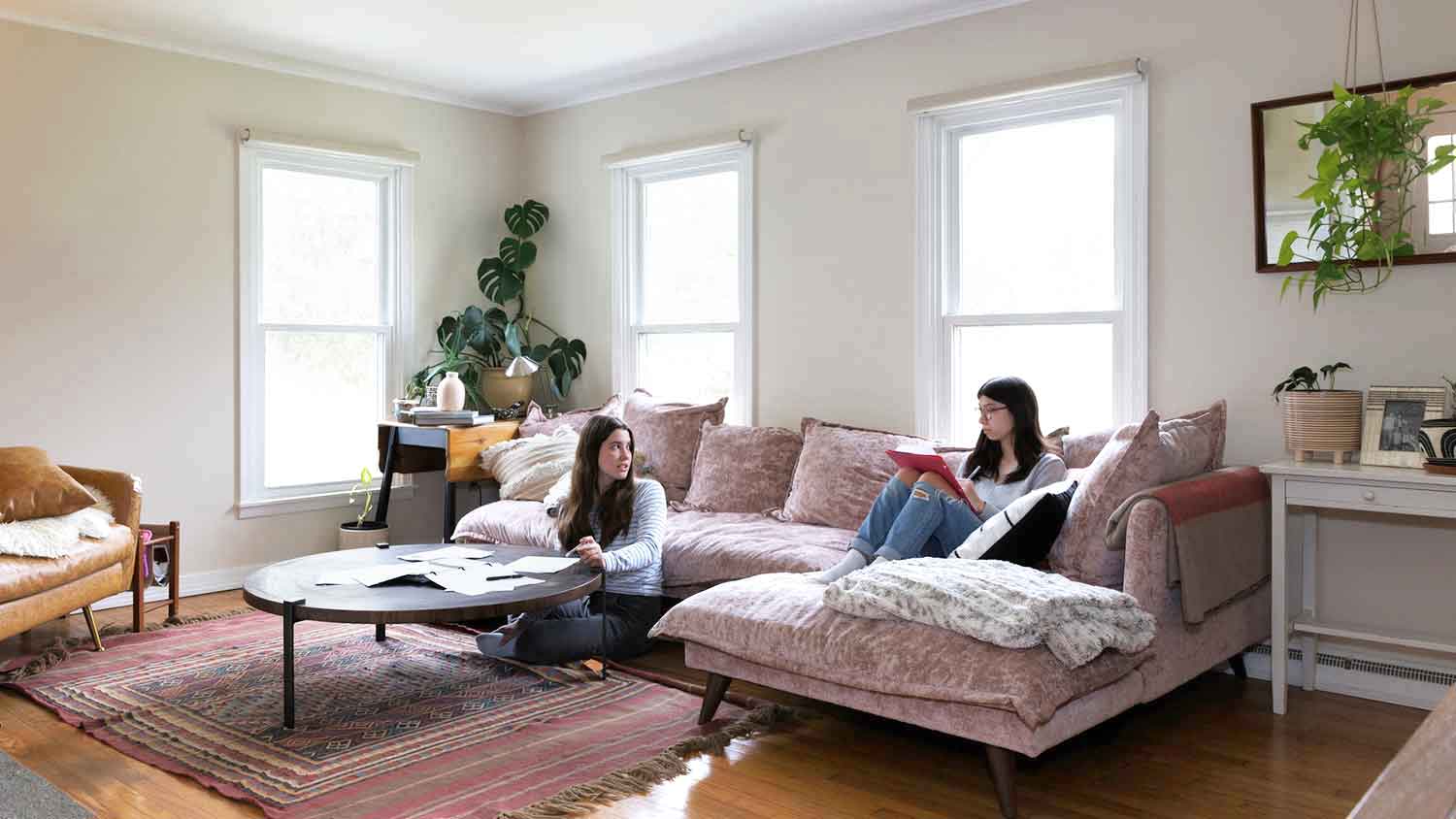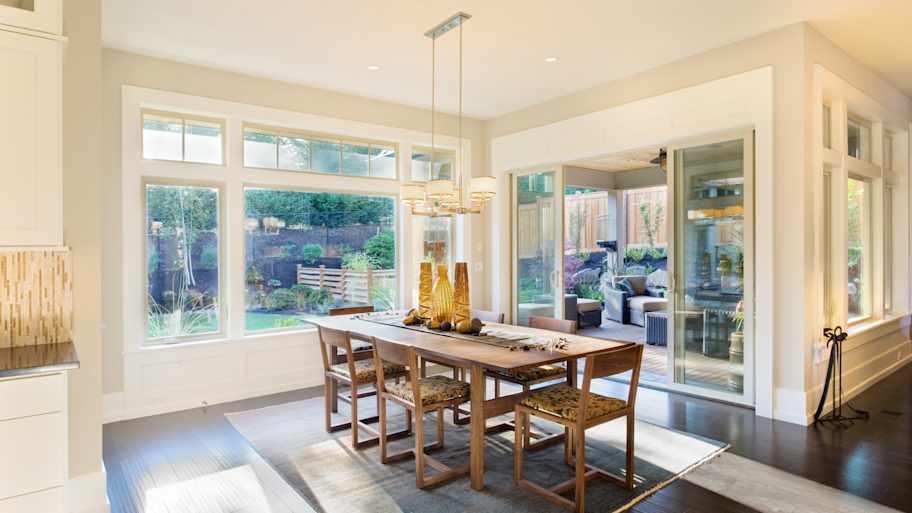
If you're hoping to add a touch of timeless style to your windows, take a look at the cost of stained glass windows and what affects installation costs.
Don’t glaze over this important home project


Window glazing refers to the glass of a window, the putty used to install the glass, and the act of installation itself.
The putty used to glaze windows seals the gap where the glass meets the frame.
Some benefits of window glazing include temperature control and noise reduction.
Maybe you live in an old home with original wood windows—or maybe the neighbor’s kid just knocked a baseball through your vinyl picture window. Either way, you’ll want to know the answer to the question what is window glazing? Window glazing is the process of installing glass into a window frame using putty. Read on to learn more about window glazing, its benefits, and whether or not you should leave this work to the pros.
Window glazing has a couple specific meanings as it is both a noun and a verb, but in general the term refers to the glass of a window. As a verb, window glazing is the act of installing glass into a window. As a noun, window glazing refers to the glass itself or the compound used to install it. In this article, we’ll largely be referring to the act of window glazing.

Window glazing is an important part of window maintenance. A putty-like glazing compound is used to install glass into window frames. The putty can either be latex-based or oil-based. A putty knife is used to clean up and smooth the edges of the putty, and then it’s left to dry. The putty used to glaze windows seals the gap where the window glass meets the frame.
Not only can window glazing be used for the installation of new windows, but you can reglaze windows as needed if you need to restore old windows.
Glazing windows comes with many practical benefits that will improve your home.
Controls Temperature. Because window glazing helps seal the gap where the glass meets the window frame, it is less likely that your windows will allow in air that alters your home’s temperature.
Improves Energy Efficiency. Glazed windows are more energy efficient windows. When air escapes through windows, this can quickly hike up your energy bill and carbon footprint as you compensate to either cool or heat your home.
Adds Property Value. Having a home with well cared for windows that improve energy efficiency can add value to your home upon reselling.
Reduces Noise. Noise pollution can cause issues with sleeping, hearing, and more. Glazing your windows adds extra protection from outside noises so your home can be a peaceful place.
According to the Department of Energy, windows are responsible for 25 to 30% of energy use. If your energy bill is above average, talk to a window contractor about an energy-friendly upgrade.
Here are a handful of types of window glazing options that vary in their benefits and drawbacks:
Single-pane windows. Windows with a single layer of glass offer less protection against cold or heat.
Double-pane insulated glass. This type of window features a layer of inert gas between two window panes to prevent heat from escaping your home.
Triple-pane insulated glass. This type seals in two layers of gas between panes to promote heat maintenance. This option is good for people who live in particularly cold climates.
Low-E glass. Low-E refers to a “low emissivity” coating on the glass that reduces how much heat passes through the glass.
If you’re wondering who to call for a leaking window or are installing new windows, you may want to consider hiring a professional. While it is possible to gather the materials on your own and glaze windows yourself, consulting a professional can provide peace of mind knowing the job will be done right. If you know you can DIY the job effectively, then saving money on the labor portion of window repair costs might be a good idea. If not, you can look into window repair services near you and find the right professional for your needs.
From average costs to expert advice, get all the answers you need to get your job done.

If you're hoping to add a touch of timeless style to your windows, take a look at the cost of stained glass windows and what affects installation costs.

Learn how much triple-pane windows cost, exploring common cost factors such as their size, type, location in your home, and design.

Discover the energy-efficient window costs. Learn about installation prices, cost factors, and tips to save money on your window upgrade.

Know the different parts of double-hung windows, their purpose, and maintenance requirements to keep your windows functional and protected.

Transom windows let in natural light and pack a visual punch. But what is a transom window? Learn about them and if they’re right for your home.

Need to replace your windows but not sure you want to keep the same dimensions? Learn about standard casement window sizes and how to fit windows to your space.